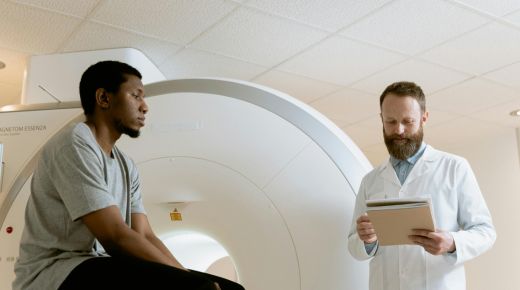When faced with a neurological issue, the prospect of seeing a neurosurgeon can feel overwhelming. Whether it’s due to chronic pain, a recent diagnosis, or unexplained symptoms, consulting a specialist in neurosurgery can be a crucial step in understanding your condition and exploring treatment options. Knowing what to expect from your appointment with a neurosurgeon can help ease anxiety and prepare you for an informed conversation about your health.
Understanding the Role of a Neurosurgeon
Neurosurgeons are highly trained medical professionals who specialize in diagnosing and treating disorders of the brain, spine, and nervous system. While surgery is one of the key treatments they provide, it’s important to understand that not all cases seen by neurosurgeons require surgery.
Many neurosurgeons collaborate with other healthcare providers to offer non-surgical treatments, such as medication or physical therapy, to manage neurological conditions. A neurosurgeon’s goal is to help patients understand their condition and recommend the best course of action, whether surgery or another treatment.
When you are referred to a neurosurgeon, it’s often because your symptoms suggest a complex issue related to the nervous system that requires expert evaluation. These symptoms may include severe headaches, chronic back pain, numbness or weakness in the limbs, or issues with balance and coordination. Seeing a neurosurgeon early in the diagnostic process allows you to receive specialized care that is tailored to the intricacies of your nervous system.
What Happens During the Consultation
Your first consultation with a neurosurgeon typically involves a thorough review of your medical history, symptoms, and previous test results, such as MRI or CT scans. The neurosurgeon will ask detailed questions about the nature and duration of your symptoms, and how they affect your daily life. They will also perform a physical examination to assess your neurological function, which may include checking your reflexes, motor skills, and sensory responses.
If your case requires further investigation, the neurosurgeon may order additional tests or imaging studies to gain a clearer understanding of your condition. These tests help the neurosurgeon determine the best course of action, whether that’s surgery, non-surgical treatment, or a referral to another specialist.
Open communication is key during the consultation. This is your opportunity to ask questions about your condition, the risks and benefits of potential treatments, and what the recovery process might look like if surgery is recommended. Neurosurgeons are there to explain complex medical concepts in a way that is understandable, ensuring that you feel confident in your treatment plan.
Treatment Options and Next Steps
After the consultation and any necessary tests, the neurosurgeon will discuss your treatment options. If surgery is recommended, you’ll receive detailed information about the procedure, including the potential risks and expected outcomes. Neurosurgery can address a wide range of conditions, such as herniated discs, brain tumors, spinal stenosis, and aneurysms, and the specific type of surgery depends on your diagnosis.
For those who do not require surgery, the neurosurgeon may suggest alternative treatments to manage your symptoms. This could involve physical therapy, pain management strategies, or medication to address inflammation or neurological pain. In many cases, a neurosurgeon will work closely with other specialists, such as neurologists or pain management doctors, to ensure a comprehensive treatment plan.
Following the consultation, you may need follow-up appointments to monitor your progress or adjust your treatment as needed. If surgery is part of your treatment plan, the neurosurgeon will explain what you can expect before, during, and after the procedure, as well as any necessary steps for rehabilitation.
Preparing for Your Appointment
Seeing a neurosurgeon can be a crucial step in finding relief from your symptoms and improving your quality of life. Before your appointment, gather any relevant medical records, including test results and imaging, to provide the neurosurgeon with a complete picture of your condition. It’s also helpful to prepare a list of questions and concerns to ensure that you leave the consultation with a clear understanding of your options.
Seeing a reputable neurosurgeon from trusted clinics like Queensland Neurosurgery & Spine Surgery does not always mean surgery is imminent. Neurosurgeons provide expert care in diagnosing and managing complex neurological conditions, offering a range of treatments designed to address your unique needs. With the right information and guidance, you can approach your consultation with confidence, knowing that you’re taking important steps toward better health.






